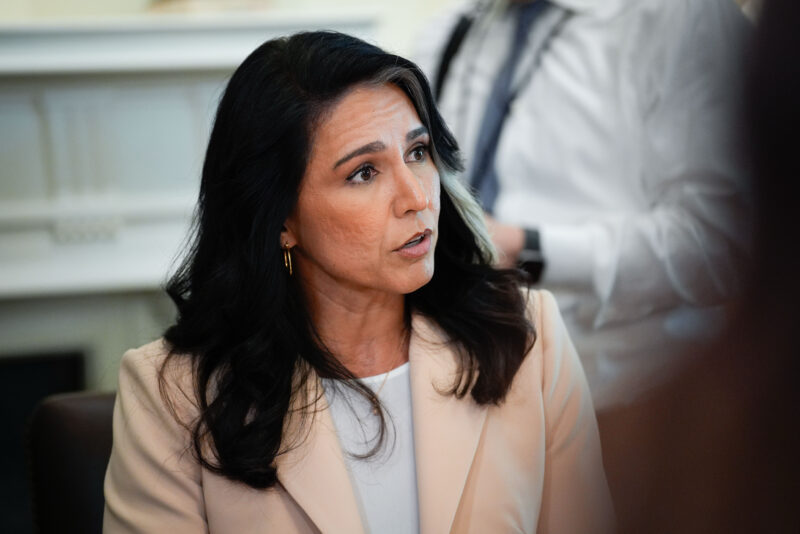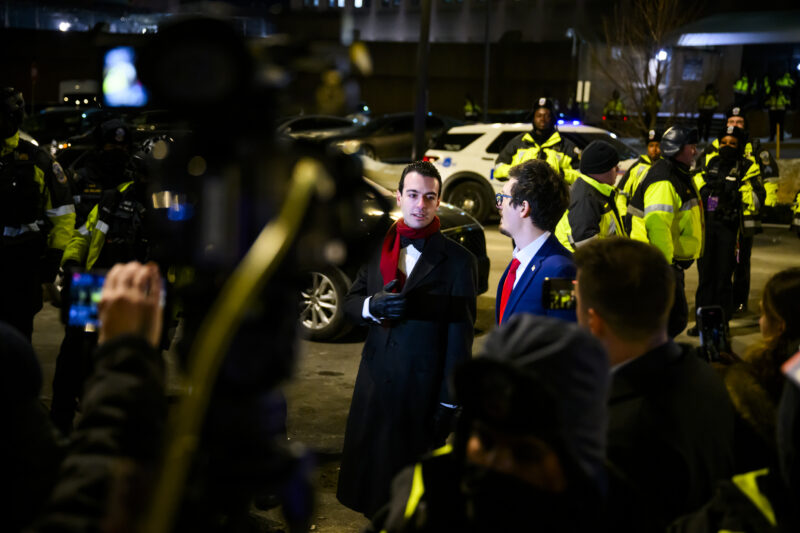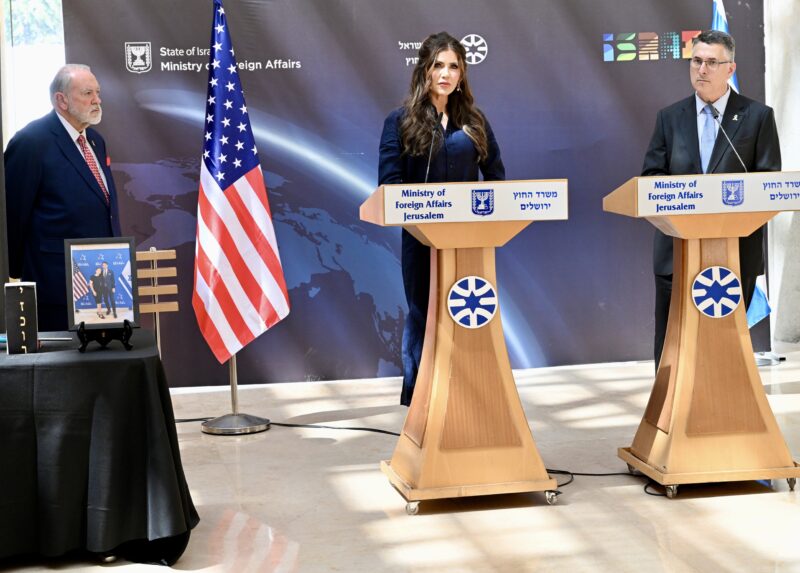Democrats Chris Coons, Catherine Cortez Masto, Andy Kim, Jacky Rosen and Elissa Slotkin voted with Republicans against the resolutions

Kevin Carter/Getty Images
The U.S. Capitol Building is seen at sunset on May 31, 2025 in Washington, DC.
The Senate on Wednesday defeated two resolutions aimed at blocking certain weapons sales to Qatar and the United Arab Emirates, with five Democrats voting with nearly all Republicans against both resolutions.
The 56-39 votes came as a pressure tactic from some progressive Democrats on the two U.S. partners and the Trump administration over dealings between President Donald Trump and the two Gulf states — Qatar’s provision of a luxury jumbo jet to serve as Air Force One and the UAE’s investment of $2 billion in a Trump-linked cryptocurrency.
Democratic Sens. Chris Coons (D-DE), Catherine Cortez Masto (D-NV), Andy Kim (D-NJ), Jacky Rosen (D-NV) and Elissa Slotkin (D-MI) voted against the two resolutions. Sen. Rand Paul (R-KY) voted present.
Coons said in a statement that “these resolutions don’t hold President Trump accountable” and will not punish Trump at all, but will rather “target other countries for the actions of our president, countries that host more than 10,000 U.S. troops on strategically important bases and are our partners.”
He said that blocking the sales would weaken two pillars of stability in the region and create space from those partners at a critical time, as well as make other nations doubt Congress’ reliability.
He said the sales were negotiated years ago.
Sen. Chris Murphy (D-CT), who led the effort with Sens. Chris Van Hollen (D-MD), Tim Kaine (D-VA), Brian Schatz (D-HI) and Bernie Sanders (I-VT), has framed the arms sales as a direct response to “cash payments” from the two nations.
“Normally those might be deals that Congress would approve, but we cannot approve any security relationship today with countries in the Middle East that are engaged in the fundamental corruption of American foreign policy,” Murphy said earlier this week. “The Trump administration is moving these sales forward as part of a broader scheme which enriches Donald Trump to the tune of billions of dollars.”
He said the Qataris are looking to be “not left out” of the second Trump administration and that the Emiratis are seeking “our secrets,” specifically sensitive semiconductor technology that could be compromised by China.
Republicans’ essentially united front against the resolutions came even though multiple Senate Republicans have expressed deep skepticism of Qatar and called for its status as a major non-NATO ally to be reconsidered.
Murphy, meanwhile, in a Senate floor speech earlier this week expressed gratitude for Qatar in spite of the resolutions.
“What makes this moment so dangerous is that both UAE and Qatar, but especially Qatar, are key partners of the United States,” Murphy said. “They’re imperfect allies, but they are our allies. In fact, I’ve been down on this floor in the past arguing on behalf of Qatar and the U.S.-Qatar relationship, when other senators have tried to denigrate the Qataris’ contributions to regional peace. The Qataris have been a critical partner of ours on so many important issues.”
He suggested that Qatar had felt bullied by the Trump administration into offering the jet and “feels like it had little choice but to say yes when asked for this $400 million gift” because the U.S. had punished and isolated Qatar during the first Trump administration when Saudi Arabia and the UAE “effectively ganged up to blockade Qatar and Trump gave that move implicit consent.”
He claimed that the UAE had first set the precedent for Qatar by investing in Trump’s cryptocurrency, leaving Qatar to play catch-up.
But he also noted that the U.S. has never allowed any other Middle East country to buy MQ-9 Reaper drones, the weapons sale to Qatar in question, because the U.S. has felt that such transfers are too risky.
















































